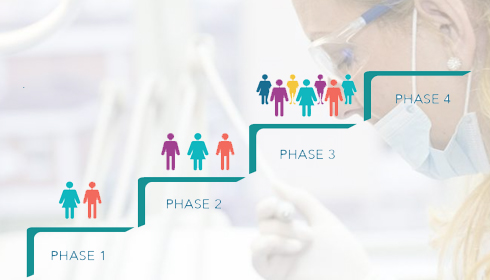
New Cancer Treatment Boosts Survival Rate by 82%
In a groundbreaking trial findings published in Clinical Cancer Research, researchers revealed a promising new technique for treating locally advanced, unresectable esophageal squamous cell carcinoma (ESCC). Dr. Yin Li of the Chinese Academy of Medical Sciences led the study, which found that combining immunotherapy with standard chemoradiation significantly improves survival rates and increases the possibility of curative surgery.
Oesophageal cancer frequently manifests with few symptoms in its early stages, resulting in delayed diagnoses and restricted treatment options. According to Dr. Li, less than half of patients are suitable for curative surgery at diagnosis, and those treated only with chemoradiation have a poor prognosis, with only 36% surviving five years. "Curative resection unequivocally serves as the cornerstone for treating resectable esophageal squamous cell carcinoma," Dr. Li stated, emphasising the vital necessity for therapies that improve surgical eligibility.
While immune checkpoint inhibitors are already used to treat recurrent or metastatic ESCC, their ability to enhance outcomes in originally inoperable cases has not been properly investigated—until now.
The phase II experiment offered a novel three-step therapy protocol that aimed to improve cancer care results. The initial stage involves chemotherapy therapy with nab-paclitaxel and cisplatin to reduce tumour growth and improve local control.
Following that, the second phase included chemotherapy, which combined the checkpoint inhibitor tislelizumab with regular chemotherapy to harness the immune system's response against remaining cancer cells.
Finally, those for whom surgery was deemed possible received surgical resection, which had a curative purpose. This holistic strategy aims to maximize therapeutic success by combining the benefits of chemoradiation, immunotherapy, and surgical interventions.
Circulating tumour DNA (ctDNA)-based liquid biopsies were used to monitor tumour dynamics, providing crucial information about minimal residual disease and the likelihood of relapse.
The trial produced remarkable results, especially in terms of resectability and survival. Of the 30 individuals, 20 underwent surgery, with an astonishing 19 demonstrating significant pathological changes. Notably, 13 of these produced complete pathological reactions, demonstrating the intervention's efficacy. This result translated into significant survival benefits: patients who received surgery had an 82% lower mortality rate and a 72% lower chance of disease progression after one year. Furthermore, more than half of these patients were still disease-free after two years, demonstrating the treatment's long-term effectiveness.
"The neoadjuvant treatment approach we tested has the potential to make initially unresectable tumours resectable, giving patients the opportunity to have a durable cancer-free state," Dr. Li told us.
These findings support the transforming power of combining chemoradiation, chemoimmunotherapy, and surgery, providing a lifeline to patients who were previously ineligible for curative treatment.
Despite its promising findings, the study's limited sample size and treatment discontinuations make it difficult to generalize the results. Dr. Li emphasised the significance of undertaking larger phase III trials to confirm the technique and optimise treatment sequencing. "Our trial clearly demonstrated the effectiveness of combining chemoradiotherapy, chemoimmunotherapy, and surgery compared to nonsurgical management alone," the doctor said.
Furthermore, the study demonstrated the need for ctDNA monitoring in guiding clinical decisions. This new diagnostic technique detects molecular alterations during therapy, offering insights into tumor behavior and relapse risk.
The success of this multimodal technique is a significant step forward in treating ESCC. This regimen, by combining novel approaches such as immunotherapy with existing treatments, has the potential to redefine care standards and improve outcomes for individuals confronting one of the most difficult cancer diagnoses.
As larger trials expand on these findings, the possibility of a broader use of this method provides hope to countless people worldwide. "This is not just a step forward—it's a leap toward better care and longer lives for those battling esophageal cancer," Dr. Li said.